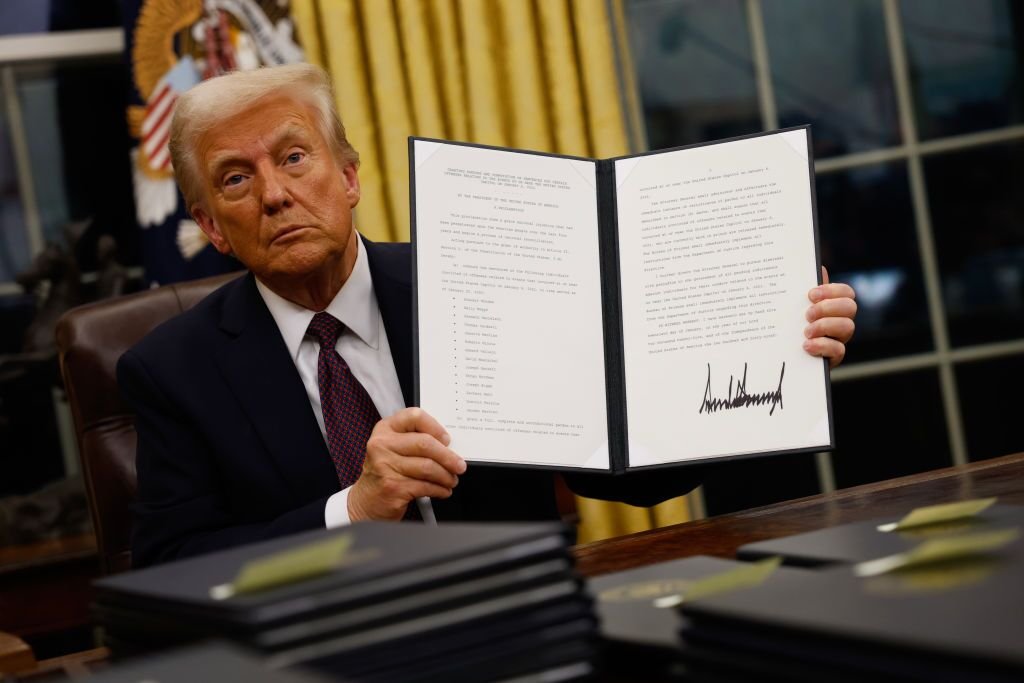The Legality of Birthright Citizenship and President Trump's Executive Orders
By Tyler Horton ‘26
Introduction
On January 20th, 2025, President Donald J. Trump signed an executive order aimed at ending the birthright citizenship status of children to undocumented immigrants and people with temporary status in the United States. The order was immediately faced with legal challenges arguing that it was a blatant violation of the Fourteenth Amendment of the United States Constitution. Lawsuits have been filed by numerous attorneys general from across the country suing President Trump’s administration. A number of federal judges have blocked President Trump's order over the first weeks of his second term.
What Are Executive Orders?
You may hear the term “executive order” but may wonder, what exactly is it? An executive order is a directive from the President of the United States for specific actions or operations to be conducted by agencies and departments within the federal government. Sitting U.S. Presidents also have the authority to overturn executive orders enacted by their predecessors. Executive orders require no approval from Congress since they are not pieces of legislation, which also means that Congress does not have the power to overturn them. However, federal judges can exercise their judicial review and examine executive orders to determine constitutionality.
Birthright Citizenship Under the Fourteenth Amendment
The history of birthright citizenship dates back to 1868 when the Fourteenth Amendment was adopted. The post-Civil War Amendment states, “All persons born or naturalized in the United States and subject to the jurisdiction thereof, are citizens of the United States and of the State wherein they reside”. It was ratified to ensure rights for African Americans and correct the Supreme Court decision of Dred Scott v. Sandford. The decision of this case established that citizenship was not extended to enslaved people, nor were they granted protections from the federal government. Under the Fourteenth Amendment, anyone born in the U.S., regardless of their parents’ status, is granted citizenship.
This was supported thirty years later in the landmark Supreme Court Case United States v. Wong Kim Ark (1898), which established the principle of birthright citizenship in the United States. The Supreme Court found that the Citizenship Clause of the Fourteenth Amendment protected the citizenship of children born in the United States to non-citizens. The legal principle of jus soli, meaning “right of soil”, was the legal basis utilized by the Court to justify citizenship granted based on sovereign boundaries. The citizenship clause of the Fourteenth Amendment has and continues to protect children born to undocumented immigrants residing in the United States.
The Current State of Trump’s Executive Orders
Four federal judges have blocked President Trump’s executive order since it was signed on his first day back in the Oval Office. On February 13th, U.S. District Judge Leo Sorokin of the District of Massachusetts blocked the order three days after a third federal judge, Judge Joseph Laplante, blocked it in New Hampshire. In the appellate ruling, Judge Sorokin states the, “Constitution confers birthright citizenship broadly, including to persons within the categories described.” Eighteen state attorneys general asked Judge Sorokin to issue a preliminary injunction, arguing that birthright citizenship is enshrined in the Constitution and cannot be overturned by an executive order. An injunction is a special court order that forces a party in a legal case to refrain from specific acts. In this case, the injunction requires President Trump to halt the erasure of the 160-year-long guarantee to birthright citizenship.
This injunction has paved the way for the United States Supreme Court to hear the cases if a writ of certiorari is granted. President Trump appointed a third of the justices currently on the Supreme Court during his first term; Neil Gorsuch, Brett Kavanaugh, and Amy Coney Barrett. Justices are impartial when it comes to hearing arguments and facts presented before them, but there is the possibility that the President will expect these three justices to rule in favor of him. This ongoing legal battle will continue to gain national attention and raise constitutional questions.
Tyler Horton is a junior majoring in Political Science and Criminal Justice
Sources
American Bar Association (2025, January 25). What Is an Executive Order? Retrieved from _______https://www.americanbar.org/groups/public_education/publications/teaching-legal-docs/what-is-an-executive-_______order-/
American Immigration Council Staff (2025, February 7). Breaking Down Trump’s Attempt to End Birthright Citizenship. _______Immigration Impact. Retrieved from https://immigrationimpact.com/2025/02/07/breaking-down-trump-end-_______birthright-citizenship/
Dred Scott v. Sandford. (n.d.). Oyez. Retrieved March 10, 2025, from https://www.oyez.org/cases/1850-1900/60us393
Judicial Review of Executive Orders. Federal Judicial Center. Retrieved from _______https://www.fjc.gov/history/administration/judicial-review-executive-orders
Michael Casey and Mike Catalini (2025, February 13). Fourth Federal Judge Blocks Trump’s Birthright Citizenship Order. _______Associated Press. Retrieved from https://apnews.com/article/trump-birthright-citizenship-ruling-boston-_______3e442a97de8398dc4faf691857ea48ea
United States v. Wong Kim Ark. (n.d.). Oyez. Retrieved March 10, 2025, from https://www.oyez.org/cases/1850-_______1900/169us649
